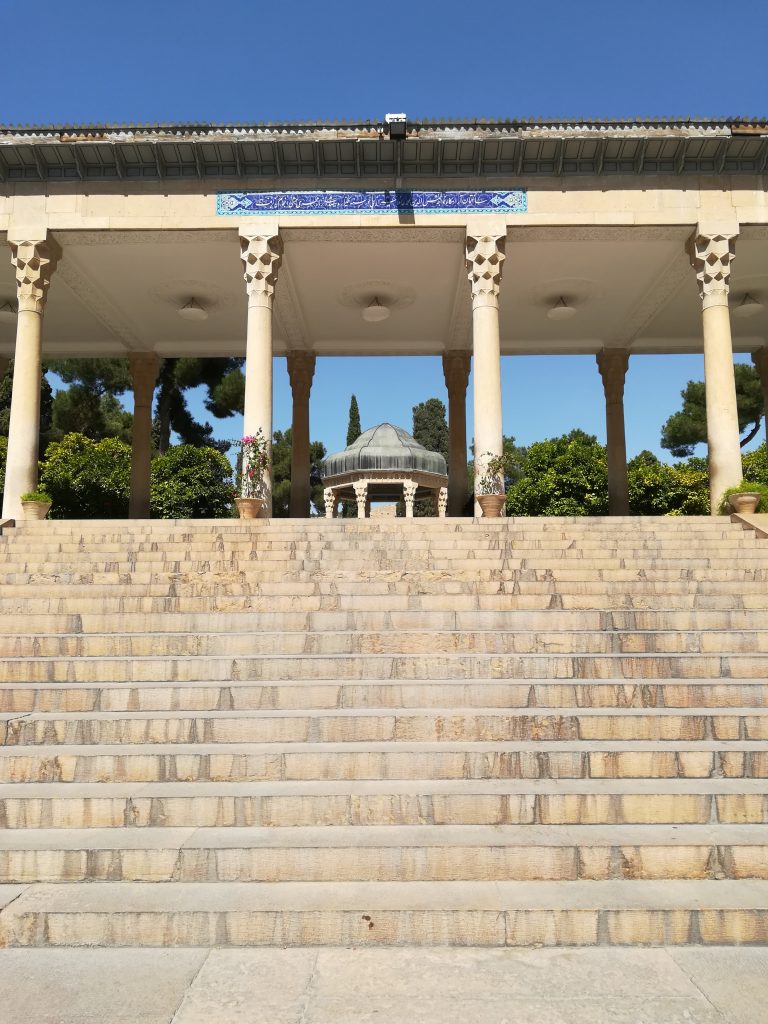Shiraz is located in the south of Iran and counts today a population of about a million and a half.
The lands surrounding the plain of Shiraz were foundational for the two major dynasties of pre-Islamic Iran, the Achaemenids (550–330BCE) and the Sassanids (206–651CE). Ever since, Shiraz and its region, known as Fars, have been integral to histories of Iran.
A saying of the prophet Muhammad describes the people of Fars as seekers of knowledge who would reach the stars to find what they are looking for. Moreover, the region of Fars – Persia in its Greek translation – came to signify for Europe the whole of the Iranian plateau, its people and culture as well as one of its major languages, Farsi. Since its foundation in the eighth century CE, Shiraz was known as a cultural center, as the birthplace of revered poets, mystics, scientists and scholars.
The verses of the Shirazi poets Sa‘dî and Hâfiz are often quoted today to express what is believed to be the existential core of the Iranian people. Fabled among Iranians and orientalists alike, Shiraz represents everything that is supposed to stand for the great Iranian civilization that Obama evoked in his speech and Iranians the world over are proud of.

Today, the centrality of Shiraz in the imagination of Iranians and foreigners stands in contrast to its relative marginality as a provincial city, economically and politically dependent on Tehran.
This apparent contradiction provides a unique “provincial” viewpoint on contemporary Iran. Representing neither a national perspective from the capital Tehran, nor a purely local view from a self-contained city, City of Knowledge proposes the viewpoint of Shiraz as a “province” to highlight how local, national and global dimensions are mutually constituted.
This original vantage point enables reflections on some of the key questions that concern contemporary Iran: the politics of the Islamic Republic and the destiny of the revolution; the urban explosion and its existential and cultural effects; and the relationship with the West and the world at large. A provincial perspective considers these issues by keeping in mind the relevance of the nation, while not positing it as their endpoint

